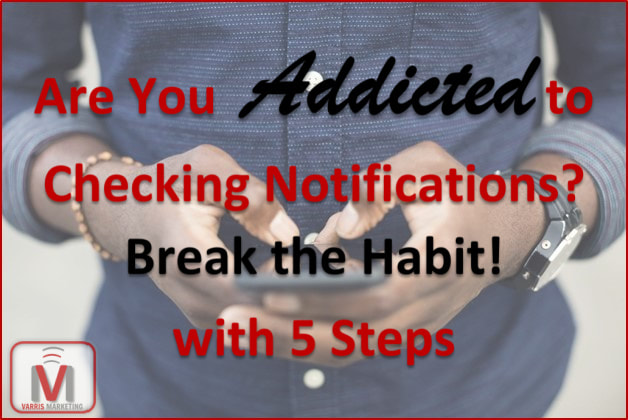|
First, let's define what a Marketing Coach is. A Marketing Coach supports their clients with tools, techniques, and skills, in the marketing realm to help them in achieving their business marketing goals. Why Your Business Needs a Marketing Coach
Bottom line, if you lack engagement, leads and sales on social media, or you’re not sure how funnels, email marketing and social media work together, you may need a marketing coach. If your business has stalled and needs a boost, or you can’t seem to scale the way you would like, you may want a marketing coach. If any of this sound like you, then connect with me, Coach Valygrl, your Marketing Coach Extraordinaire. If you would like to learn more about how a marketing coach can help your business or are ready to see what options are available to you, schedule your Complimentary, No Obligation 30 min Coffee Connect Today!! BOOK HERE Coach Valygrl
|
| Part of good personal development in regard to your business life and personal life includes creating better online habits, so that you can achieve more focus throughout your day. The more you can focus on business stuff during daytime business hours, the more time you’ll leave to focus on the important people in your life during the evening hours. These tips will help you achieve better focus and help you enjoy some de-cluttering during your time online, so that you have a day that results in more productivity. |
1. Have a plan.
Having a plan for your day – even if it’s just a simple bullet list of to-do items – will help you be more productive. Divide your business tasks from your personal errands. Some people swear by the “brain dump” method, where you write down every single thing that’s on your mind and then organize it into categories, such as Must Do, Client Work, Future Projects, or Personal Errands. Utilizing this method gets the extraneous ideas out of your mind so you can focus more clearly on the task at hand.
2. Schedule how much time you will allot for your online activities.
Try using the time block method, which entails blocking off a certain number of hours to work with coaching clients, writing your next book or course, or to reconnect with your list by scheduling a month’s worth of emails. Simply follow the plan and you’ll see your productivity increase because you know exactly what has to happen next. Try this method at home, especially with tasks you don’t enjoy, such as housework or yard work. Block off a certain amount of time and work as quickly as possible to get the job done.
3. Reduce your online to-do list.
When you are looking for a workday that results in more focus and more productivity, it is best to create a realistic list. This means you should cut some items off your list that can wait until another day or that can be delegated to a VA. Try not to do everything in one day because you will naturally run out of time. Prioritize and do the most pressing online tasks that cannot be put off. When you are not frazzled by thinking you have so many things to do online, you will produce better quality work.
4. Take a few breaks.
When you are online for a long time, your mind can start to wander. You get distracted and strive to engage in less meaningful activities, which reduces your focus and your productivity. Rather than sitting at your desk for hours on end, take some breaks throughout the day; your body and your brain will thank you. You’ll gain mental clarity about what you need to accomplish and be able to recognize when you are veering into less productive activities.
5. Do the more difficult tasks prior to lunch time.
It is highly advised to do your more challenging items before you head off to lunch. This is because your mind has more vitality in the morning and will be able to make it through the difficult tasks more quickly than if they were left to be completed in the later part of the day. This technique is sometimes called “eating the frog” and you’ll have an immediate sense of accomplishment when this one task is complete. Avoiding distractions throughout the workday is paramount to your success, especially if you work in a home office. Start off with these five tips and you might surprise yourself with your increased productivity.
Having a plan for your day – even if it’s just a simple bullet list of to-do items – will help you be more productive. Divide your business tasks from your personal errands. Some people swear by the “brain dump” method, where you write down every single thing that’s on your mind and then organize it into categories, such as Must Do, Client Work, Future Projects, or Personal Errands. Utilizing this method gets the extraneous ideas out of your mind so you can focus more clearly on the task at hand.
2. Schedule how much time you will allot for your online activities.
Try using the time block method, which entails blocking off a certain number of hours to work with coaching clients, writing your next book or course, or to reconnect with your list by scheduling a month’s worth of emails. Simply follow the plan and you’ll see your productivity increase because you know exactly what has to happen next. Try this method at home, especially with tasks you don’t enjoy, such as housework or yard work. Block off a certain amount of time and work as quickly as possible to get the job done.
3. Reduce your online to-do list.
When you are looking for a workday that results in more focus and more productivity, it is best to create a realistic list. This means you should cut some items off your list that can wait until another day or that can be delegated to a VA. Try not to do everything in one day because you will naturally run out of time. Prioritize and do the most pressing online tasks that cannot be put off. When you are not frazzled by thinking you have so many things to do online, you will produce better quality work.
4. Take a few breaks.
When you are online for a long time, your mind can start to wander. You get distracted and strive to engage in less meaningful activities, which reduces your focus and your productivity. Rather than sitting at your desk for hours on end, take some breaks throughout the day; your body and your brain will thank you. You’ll gain mental clarity about what you need to accomplish and be able to recognize when you are veering into less productive activities.
5. Do the more difficult tasks prior to lunch time.
It is highly advised to do your more challenging items before you head off to lunch. This is because your mind has more vitality in the morning and will be able to make it through the difficult tasks more quickly than if they were left to be completed in the later part of the day. This technique is sometimes called “eating the frog” and you’ll have an immediate sense of accomplishment when this one task is complete. Avoiding distractions throughout the workday is paramount to your success, especially if you work in a home office. Start off with these five tips and you might surprise yourself with your increased productivity.
Have you been feeling the need to conduct some digital decluttering and wonder how you can remain more focused on what is truly important instead of feeling distracted by too much nonsense? Many business people and entrepreneurs need to break the habit of checking their notifications and phone all throughout the day, simply because they are missing out on life as it happens. If you carefully
apply these tips, you will find yourself more relaxed and interested in
apply these tips, you will find yourself more relaxed and interested in
1. Stick to a schedule.
To wean yourself from the habit of checking your notifications and phone so much, make a schedule. You can start with fifteen- or thirty-minute increments for checking your email and social media. Once you become better at not getting sucked into time wasting activities, increase that increment to every 45-minutes, then move up to every hour. In addition, also set a 5-minutes timer to check and respond to the most important things. If your inbox is full, allot an extra ten- to fifteen-minutes to respond to anything that requires your input. Also, it is a good idea to inform friends, family, and colleagues that you will not be answering their calls and messages as quickly as you did previously, so that they do not worry or become anxious.
2. Be sure to shut off push notifications whenever possible.
You are not obligated to be bombarded with interruptions from your social media platforms or with messages that your favorite online podcast has just uploaded a new topic. You can greatly reduce such distractions by shutting off as many push notifications as possible. Go even further by shutting off your email and calendar notifications. If you’re on a schedule for checking email, then notifications are unnecessary.
3. Remove distracting apps.
Much of your phone usage comes from unconscious habit. Without much thinking, people shift from Instagram to Facebook, then check the weather and texts before playing their favorite game or checking their news headlines. However, if you use only specific necessary apps, then this will reduce the amount of time that is wasted on your phone. Try deleting the apps for social media sites and only use the web browser of your phone or laptop to engage. You’ll reduce time on your phone as apps make it too easy to waste time, even after your finished engaging with your followers.
4. Keep your device away from your bed.
Your phone does not have to be the last thing you see before going to sleep at night and the first thing you see in the morning. To avoid the trap of looking at your phone too much, try using an old-school alarm clock instead of your phone.
5. Use a smart speaker.
A smart speaker is valuable, because it helps you live a life away from your phone screen. When you have a smart speaker attached to your network via Bluetooth technology, this will prevent you from having to use your phone to turn on podcasts or music; instead, just say your choices to the smart speaker and go about your day, listening and learning instead of being sucked into your phone. The longer your phone is out of your hands, the more productive you’ll become, and these tips are just the beginning of your lessened dependence on technology. You may even discover that your days feel longer because you’re not distracted with your phone or notifications any longer.
To wean yourself from the habit of checking your notifications and phone so much, make a schedule. You can start with fifteen- or thirty-minute increments for checking your email and social media. Once you become better at not getting sucked into time wasting activities, increase that increment to every 45-minutes, then move up to every hour. In addition, also set a 5-minutes timer to check and respond to the most important things. If your inbox is full, allot an extra ten- to fifteen-minutes to respond to anything that requires your input. Also, it is a good idea to inform friends, family, and colleagues that you will not be answering their calls and messages as quickly as you did previously, so that they do not worry or become anxious.
2. Be sure to shut off push notifications whenever possible.
You are not obligated to be bombarded with interruptions from your social media platforms or with messages that your favorite online podcast has just uploaded a new topic. You can greatly reduce such distractions by shutting off as many push notifications as possible. Go even further by shutting off your email and calendar notifications. If you’re on a schedule for checking email, then notifications are unnecessary.
3. Remove distracting apps.
Much of your phone usage comes from unconscious habit. Without much thinking, people shift from Instagram to Facebook, then check the weather and texts before playing their favorite game or checking their news headlines. However, if you use only specific necessary apps, then this will reduce the amount of time that is wasted on your phone. Try deleting the apps for social media sites and only use the web browser of your phone or laptop to engage. You’ll reduce time on your phone as apps make it too easy to waste time, even after your finished engaging with your followers.
4. Keep your device away from your bed.
Your phone does not have to be the last thing you see before going to sleep at night and the first thing you see in the morning. To avoid the trap of looking at your phone too much, try using an old-school alarm clock instead of your phone.
5. Use a smart speaker.
A smart speaker is valuable, because it helps you live a life away from your phone screen. When you have a smart speaker attached to your network via Bluetooth technology, this will prevent you from having to use your phone to turn on podcasts or music; instead, just say your choices to the smart speaker and go about your day, listening and learning instead of being sucked into your phone. The longer your phone is out of your hands, the more productive you’ll become, and these tips are just the beginning of your lessened dependence on technology. You may even discover that your days feel longer because you’re not distracted with your phone or notifications any longer.
Working smart - not hard - is the best way to get the biggest return on your time investment. Life hacks and delegation are essential for making life and business easier. Whether it’s having a team to maximize your output, or apps and management tools that do the work automatically, having support is essential.
One of the pioneers for using tools in business is Tim Ferris. Ferris book The Four-Hour Work Week broke the charts and stayed a best-seller for over four years. Written in 2007, it contains cutting edge ideas about time management and delegation that were obscure at the time. Nowadays, his tips and tricks are relatively mainstream and easy to apply.
Here’s a list of three tool categories that will make your life easier:
Graphics Tools- A huge part of social media engagement comes from graphics. Designing graphics can be tedious and time consuming. Having a tool that generates graphics easily is a must. Not everyone understands Adobe Illustrator or Photoshop, which can be very confusing and discouraging. For easier graphic design, there are affordable websites that have no-fee and low-fee plans. Check out PicMonkey, Canva, or Relay That for easy to use graphic design tools.
Social Media Management Tools- There are multiple websites designed to help integrate and manage social media platforms. These tools allow you to preplan your output and content, and post to multiple social media platforms at one time. Love Twitter? Consider TweetDeck- a dashboard that lets you plan tweets, monitor engagement, and simplify your Twitter experience. Hootsuite is a great tool to manage posts to Facebook. The platform allows you to pre-schedule your posts and alerts you when you have engagement.
Personal Assistant Tools- Sometimes the best tool has a beating heart. Hiring a personal assistant or virtual assistant (VA) is an excellent way to be two places at one time. Or three or four. Being able to delegate and have work done on your behalf is easier and more affordable than ever. You don’t have to know everything about your business to be successful. Successful people aren’t the smartest in the room; they surround themselves with great people who know a lot about something very specific. The teamwork makes the dream work.
Utilizing tools is the way to go for managing your time wisely, but don’t overdo it. It’s important to keep a personal touch with your engagement. If you use tools to post automatically, make sure you go back and engage with your community when they begin to respond to your content. Also, make sure any virtual assistants are engaging with the community in the tone and manner consistent with your brand. It’s great to have tools, but they must be managed with a personal touch.
Thanks for reading
Val
One of the pioneers for using tools in business is Tim Ferris. Ferris book The Four-Hour Work Week broke the charts and stayed a best-seller for over four years. Written in 2007, it contains cutting edge ideas about time management and delegation that were obscure at the time. Nowadays, his tips and tricks are relatively mainstream and easy to apply.
Here’s a list of three tool categories that will make your life easier:
Graphics Tools- A huge part of social media engagement comes from graphics. Designing graphics can be tedious and time consuming. Having a tool that generates graphics easily is a must. Not everyone understands Adobe Illustrator or Photoshop, which can be very confusing and discouraging. For easier graphic design, there are affordable websites that have no-fee and low-fee plans. Check out PicMonkey, Canva, or Relay That for easy to use graphic design tools.
Social Media Management Tools- There are multiple websites designed to help integrate and manage social media platforms. These tools allow you to preplan your output and content, and post to multiple social media platforms at one time. Love Twitter? Consider TweetDeck- a dashboard that lets you plan tweets, monitor engagement, and simplify your Twitter experience. Hootsuite is a great tool to manage posts to Facebook. The platform allows you to pre-schedule your posts and alerts you when you have engagement.
Personal Assistant Tools- Sometimes the best tool has a beating heart. Hiring a personal assistant or virtual assistant (VA) is an excellent way to be two places at one time. Or three or four. Being able to delegate and have work done on your behalf is easier and more affordable than ever. You don’t have to know everything about your business to be successful. Successful people aren’t the smartest in the room; they surround themselves with great people who know a lot about something very specific. The teamwork makes the dream work.
Utilizing tools is the way to go for managing your time wisely, but don’t overdo it. It’s important to keep a personal touch with your engagement. If you use tools to post automatically, make sure you go back and engage with your community when they begin to respond to your content. Also, make sure any virtual assistants are engaging with the community in the tone and manner consistent with your brand. It’s great to have tools, but they must be managed with a personal touch.
Thanks for reading
Val





